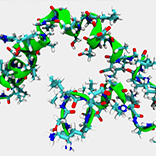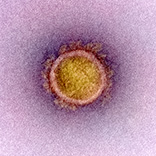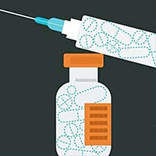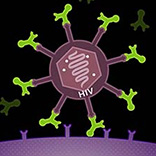Understanding How Infectious Diseases Spread
Biostatistics, Bioinformatics and Epidemiology (BBE) researchers use mathematical modeling, computational biology, epidemiology and statistics to determine how infectious diseases such as COVID-19, HIV, tuberculosis, malaria and Ebola are spread and contained. Our researchers collaborate across multiple research areas and work with network colleagues — such as the HIV Vaccine Trials Network, HIV Prevention Trials Network and COVID-19 Prevention Trials Network — to incorporate biostatistics, bioinformatics and population modeling throughout vaccine design, development, evaluation and deployment.
Key Areas of Research
Our researchers are applying their extensive experience in statistics and mathematics to the design, implementation and conduct of treatment and prevention clinical trials. Specific areas of research focus include:
- Coronavirus (COVID-19)
- HIV/AIDS Prevention
- Malaria Prevention
- Vaccine Efficacy
- Clinical Trial Design
- Disease Screening and Risk Prediction
- Respiratory Viruses
Tracking the COVID-19 Pandemic
Fred Hutch researchers worked with colleagues at the University of Basel to track changes in the SARS-CoV2 virus genetic code as it spread from person to person. This information helps researchers chart the viruses progression.
More About Biostatistics, Bioinformatics and Epidemiology Research in Progress

Expanding the Use of Biomarkers in Disease Identification and Treatment
Dr. Ying Huang develops statistical methods for design and analysis of biomarker studies for disease screening, surrogate endpoint identification and treatment selection in cancer and infectious diseases. His group studies how to efficiently select biomarkers among high-dimensional candidates and derive marker-based individualized rules, using data from randomized trials and observational studies.

Tracking the Spread of Viruses
Dr. Trevor Bedford studies the dynamics of virus populations to understand how strains evolve and spread throughout the world. His team is particularly interested in how viruses mutate in response to host immune responses as well as the factors that make certain strains more virulent and infectious.

Analyzing Vaccine Clinical Trials
Dr. Youyi Fong uses biostatistical modeling and computational methods to analyze the effectiveness of vaccine candidates in clinical trials. His team collaborates with clinical research teams striving to eliminate HIV, dengue and cholera.

Developing HIV Vaccine Trials and Statistical Methods
Dr. Peter Gilbert researches the statistical design and analysis of HIV vaccine efficacy trials, with emphasis on assessing immune correlates of vaccine-induced protection. Though focused on HIV vaccine trials, his research contributes to general areas of statistical methods research including surrogate endpoint assessment, causal inference, survival analysis, and efficient randomized trial design.

Designing and Analyzing Infectious Disease Clinical Trials
Dr. Elizabeth Brown is a biostatistician engaged in the design and analysis of clinical trials for a number of infectious diseases, including COVID-19 and HIV.

Applying Advanced Technologies to Problems
Dr. Ollivier Hyrien applies advanced technologies such as machine learning and dynamic modeling to address problems in laboratory experiments and clinical studies.

Providing Statistical Leadership for HIV Prevention Studies
Dr. Deborah Donnell has shaped pivotal trials in many areas of HIV prevention research and has included interventions to stop mother-to-child transmission; the treatment of opiate addiction; treatment as prevention in HIV-infected persons; and the use of pre-exposure prophylaxis, or PrEP — a once-a-day antiretroviral pill to prevent infection in those who are at high risk.

Designing Vaccine Studies
Dr. Holly Janes is a biostatistician working on the design and analysis of vaccine studies, with a particular expertise in HIV prevention and vaccine science.

Conducting Survival Analysis
Dr. Fei Gao develops novel statistical methods for survival analysis and semiparametric inference.

Vaccine Efficacy Design and Analysis
Dr. Aaron Hudson is a biostatistician engaged in the design and analysis of vaccine efficacy trials. He develops and employs statistical tools to analyze a person’s immune response to vaccination and to assess the risk of adverse health outcomes.
Networks Supporting Our Research Efforts

Statistical & Data Management
The Statistical Center for HIV/AIDS Research and Preventions (SCHARP) supports HIV prevention and vaccine studies worldwide with high quality clinical and laboratory data management and statistical services.

Fostering Collaborative Research
The Infectious Disease Prevention Research via Innovative Statistical Methods (ID-PRISM) is a center fostering collaborative efforts to rigorously answer scientific questions in HIV and other infectious disease prevention studies.
Other network collaborations:
- HIV Vaccine Trials Network (HVTN)
- HIV Prevention Trials Network (HPTN)